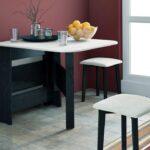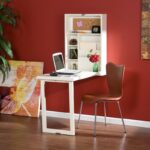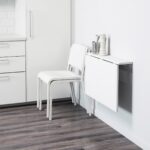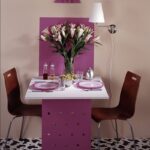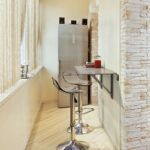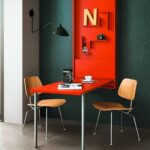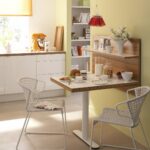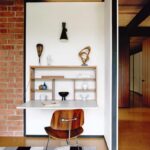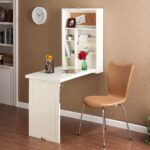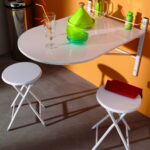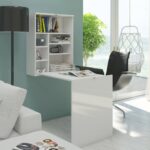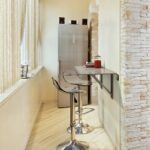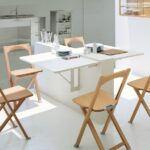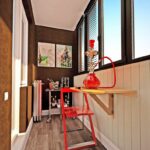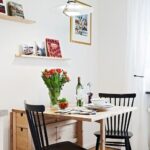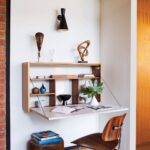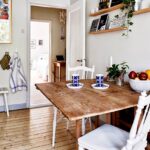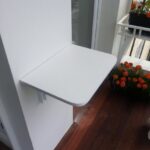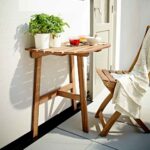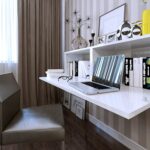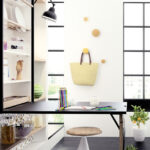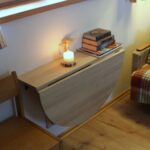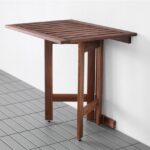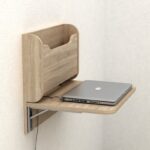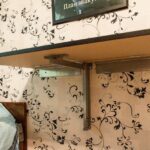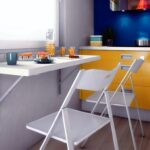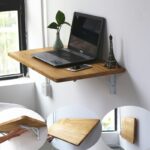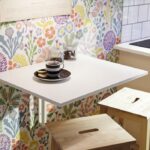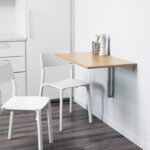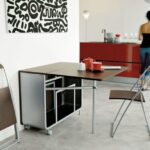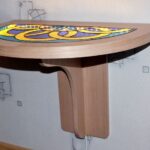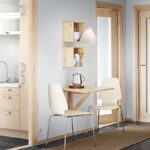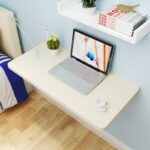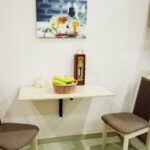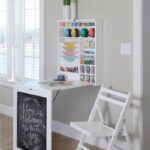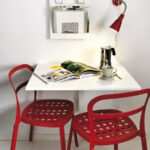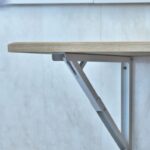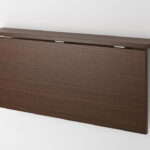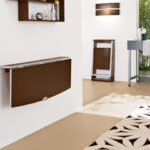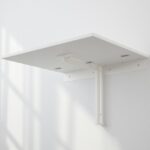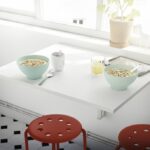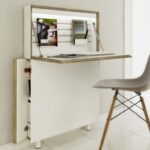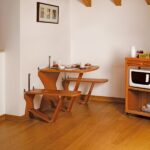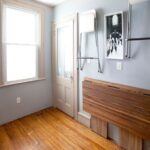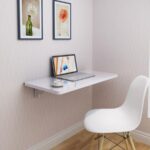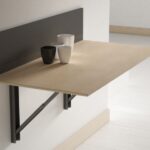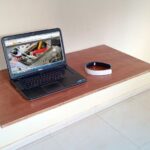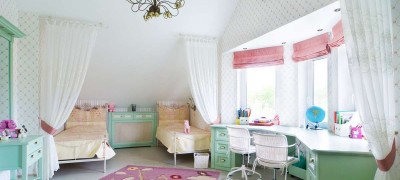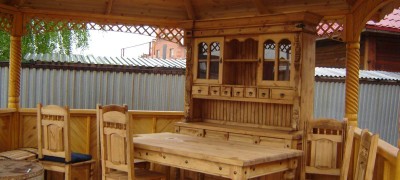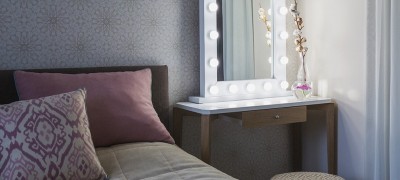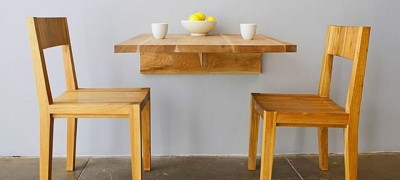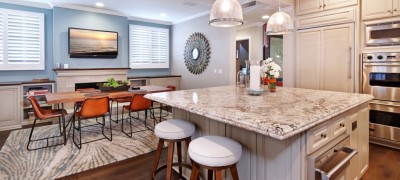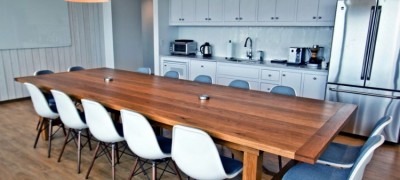Folding table manufacturing
It is difficult to place large-sized furniture in a cramped apartment or room. To save some space, a folding table with wall mounting is installed in one of the rooms. This simple design does not have to be bought - often the table is made independently.
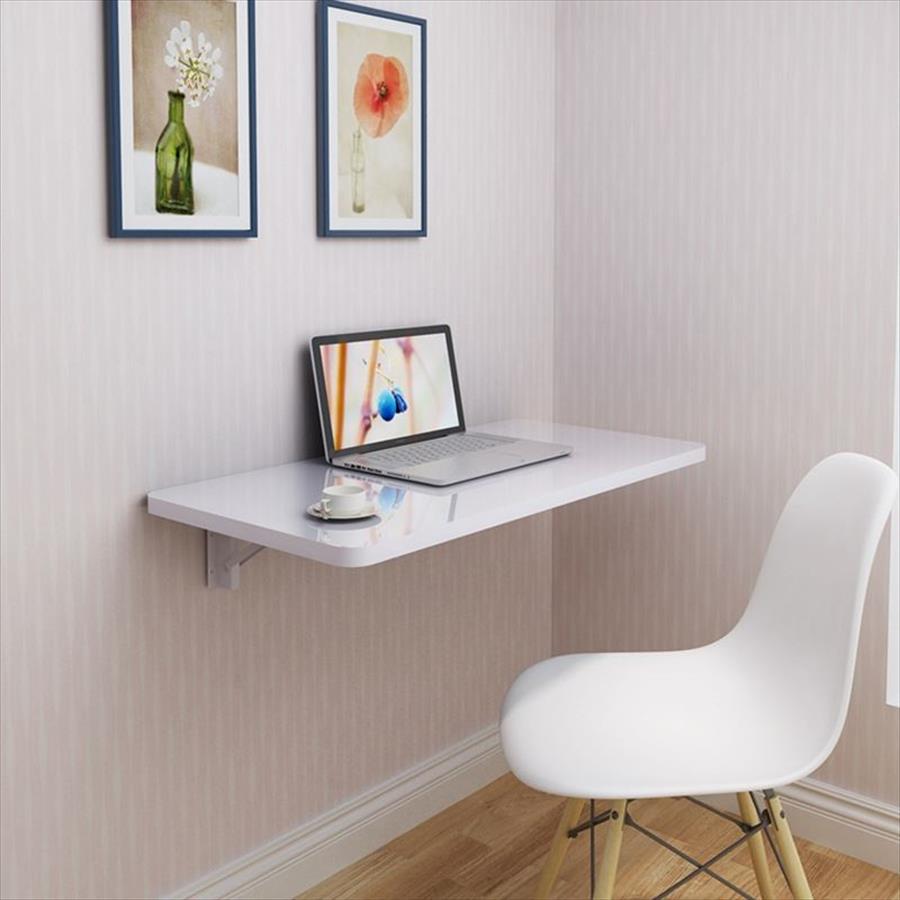
Varieties of folding tables
Folding tables are very compact, look beautiful, cost little, and differ in functionality. Usually they are made of coniferous and deciduous wood, metal, glass, but the design is not overly massive - it is problematic to fold a large table every time.
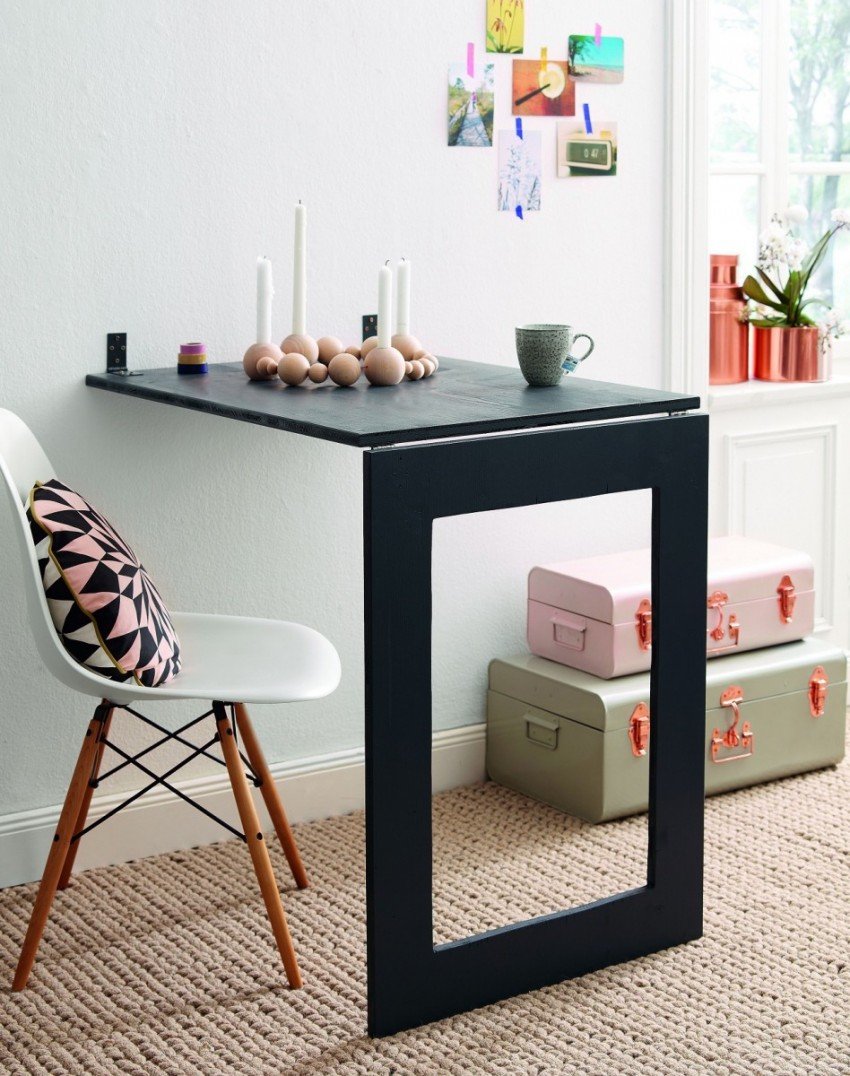
Types of wall tables:
- normal;
- folding;
- hinged;
- mobile;
- reclining bar counter.
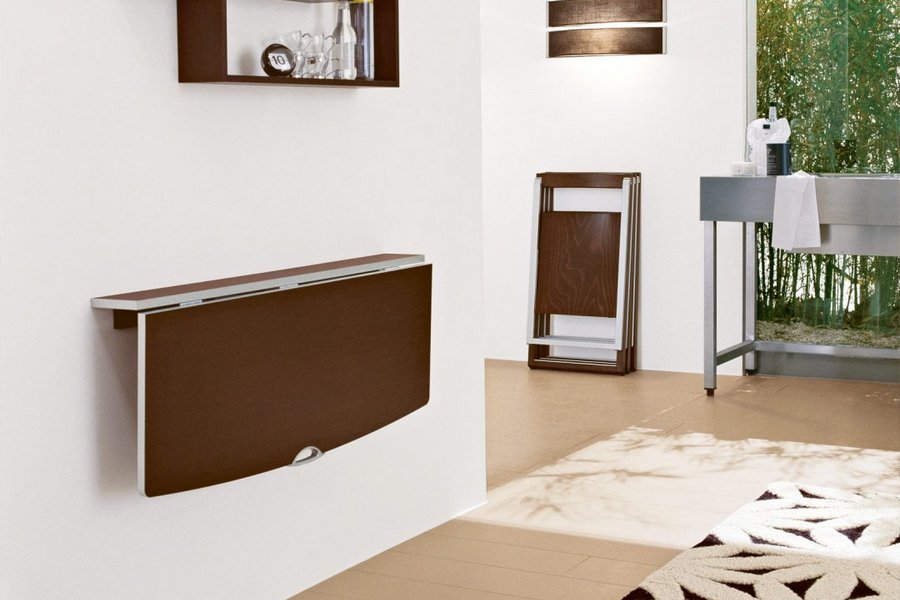
The smallest structures represent a wide shelf, three or four people can be accommodated at the same time at the larger folding tables. Some models are completely devoid of legs, which allows them to take up a minimum of space, while others have one or two. When choosing an installation site, the existing functionality, design, dimensions, chair height, closely spaced objects are taken into account.
Traditional
An ordinary or traditional table has a sturdy tabletop that can be mounted on a wall or cabinet. This is a versatile model suitable for decorating a dining room or kitchen work area. The size is chosen based on the available unfolding area.

Hinged
Compact hinged structures, in terms of parameters, resemble a hinged shelf or an extended window sill. They do not have legs, but sometimes they are supplemented with sidewalls. This is the smallest option.
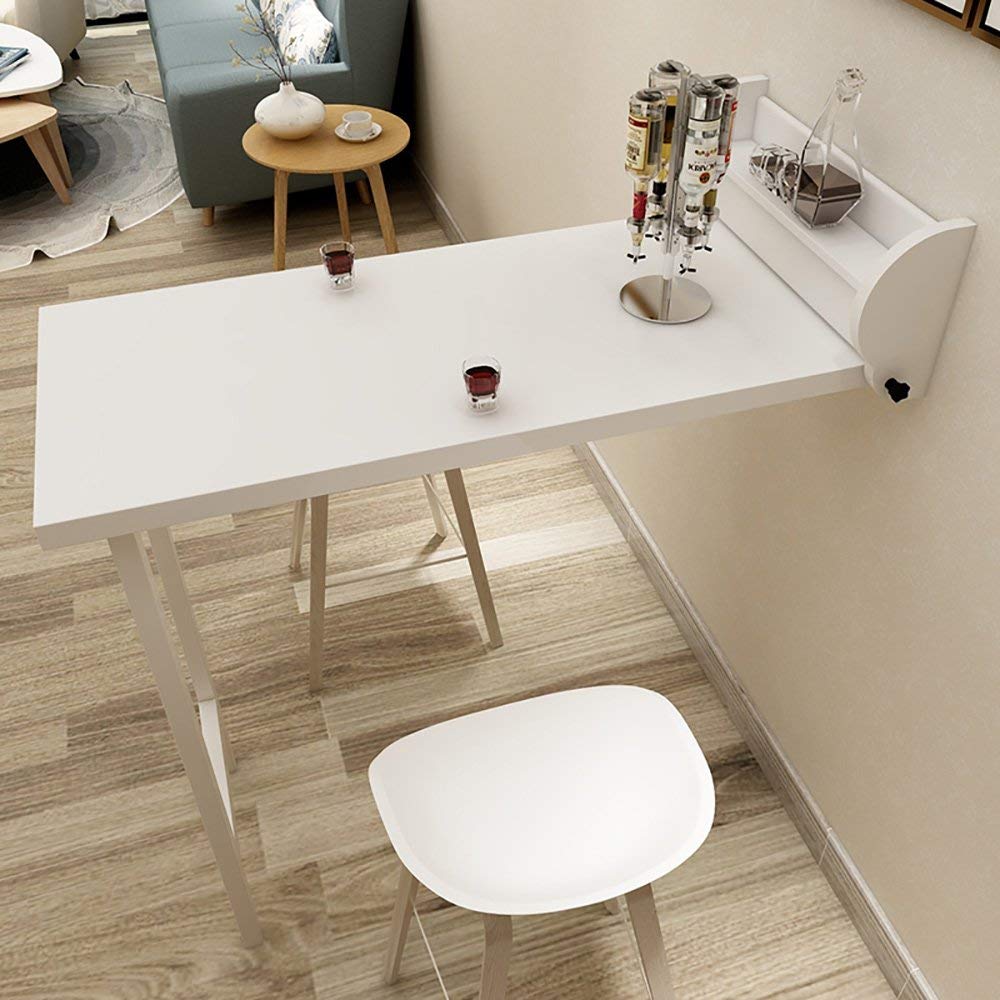
Folding
The folding table "transformer" is multifunctional. It is made in two versions: wall-mounted (fixed directly on the wall), wall-mounted (the table surface folds from the central axis in two directions, the product can be easily moved away, retracted into a corner). When folded, the table can be used as a bedside table.
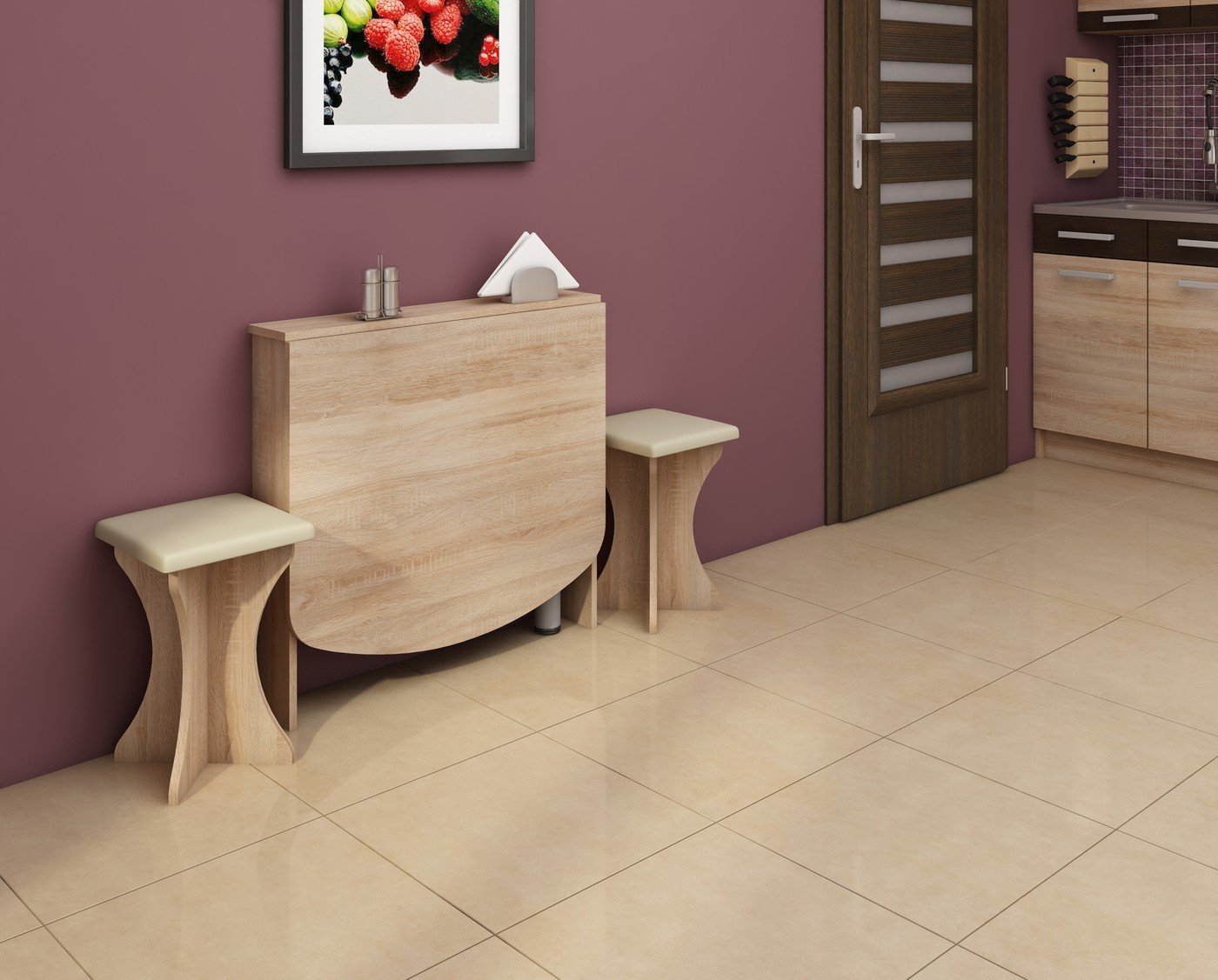
Mobile
All movable models of folding tables, easily move along the wall on which they are fixed, using the guides located below. This compact product is suitable for both cramped and spacious kitchens.
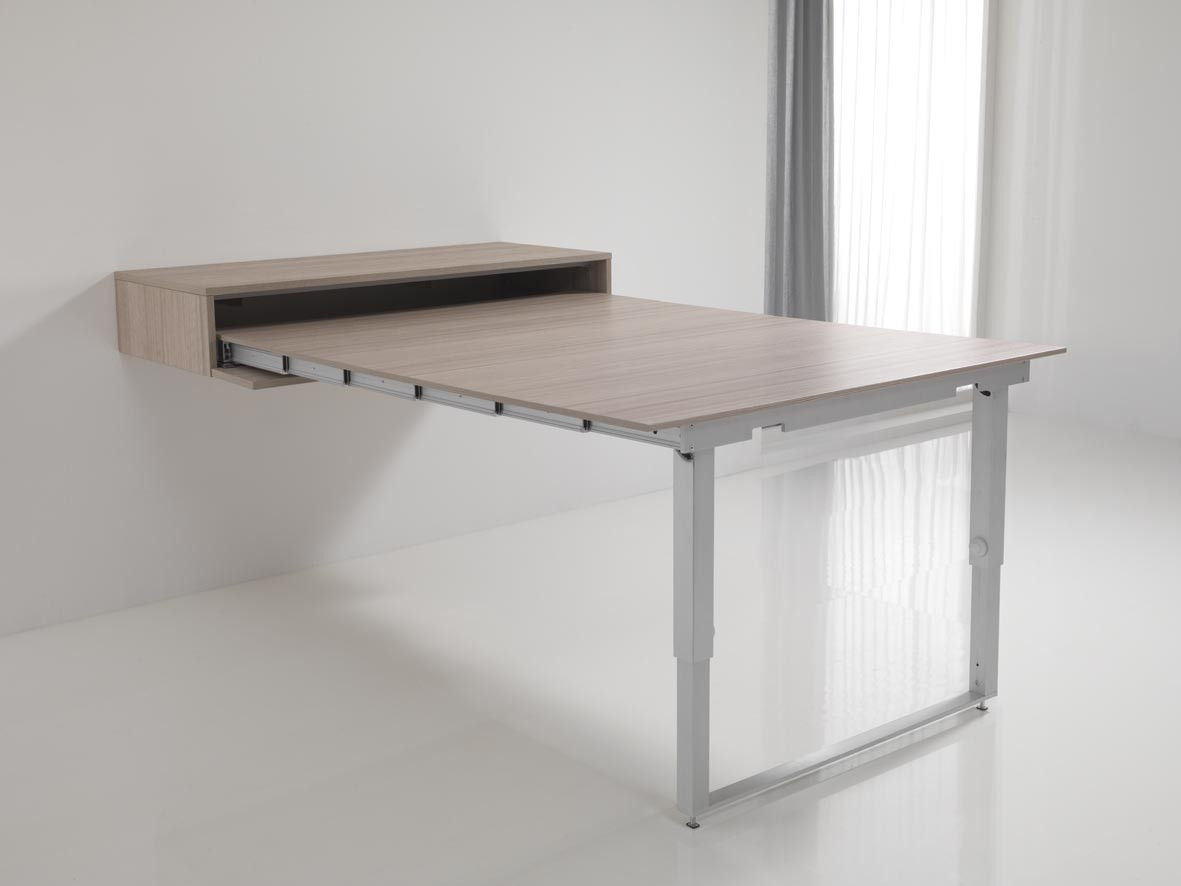
Folding bar counter
Folding bar counters are used in the kitchen or as a zoning element of a studio apartment, kitchen-living room.The main feature of the design is its elongated shape, it is a long, narrow tabletop. When installed at a height of more than a meter, a full-fledged bar counter is obtained.
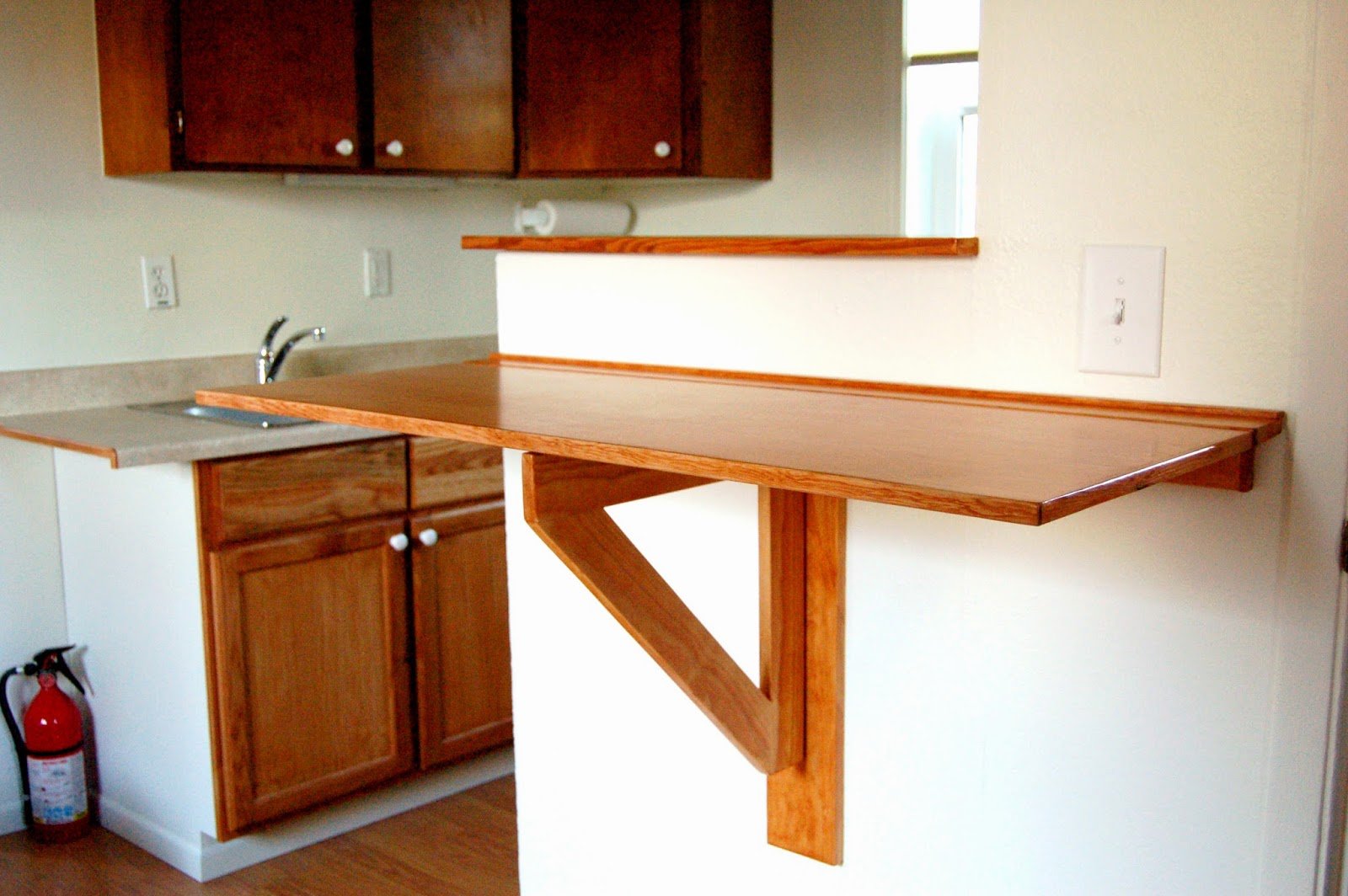
Folding table mechanisms
The mechanism of a convenient folding table connects two main parts - a tabletop and clamps-stops. Supports are made triangular or U-shaped, with their help the surface of the table rises and falls. The surface itself is made of any length, size, thickness. Additionally, legs and shelves are mounted.
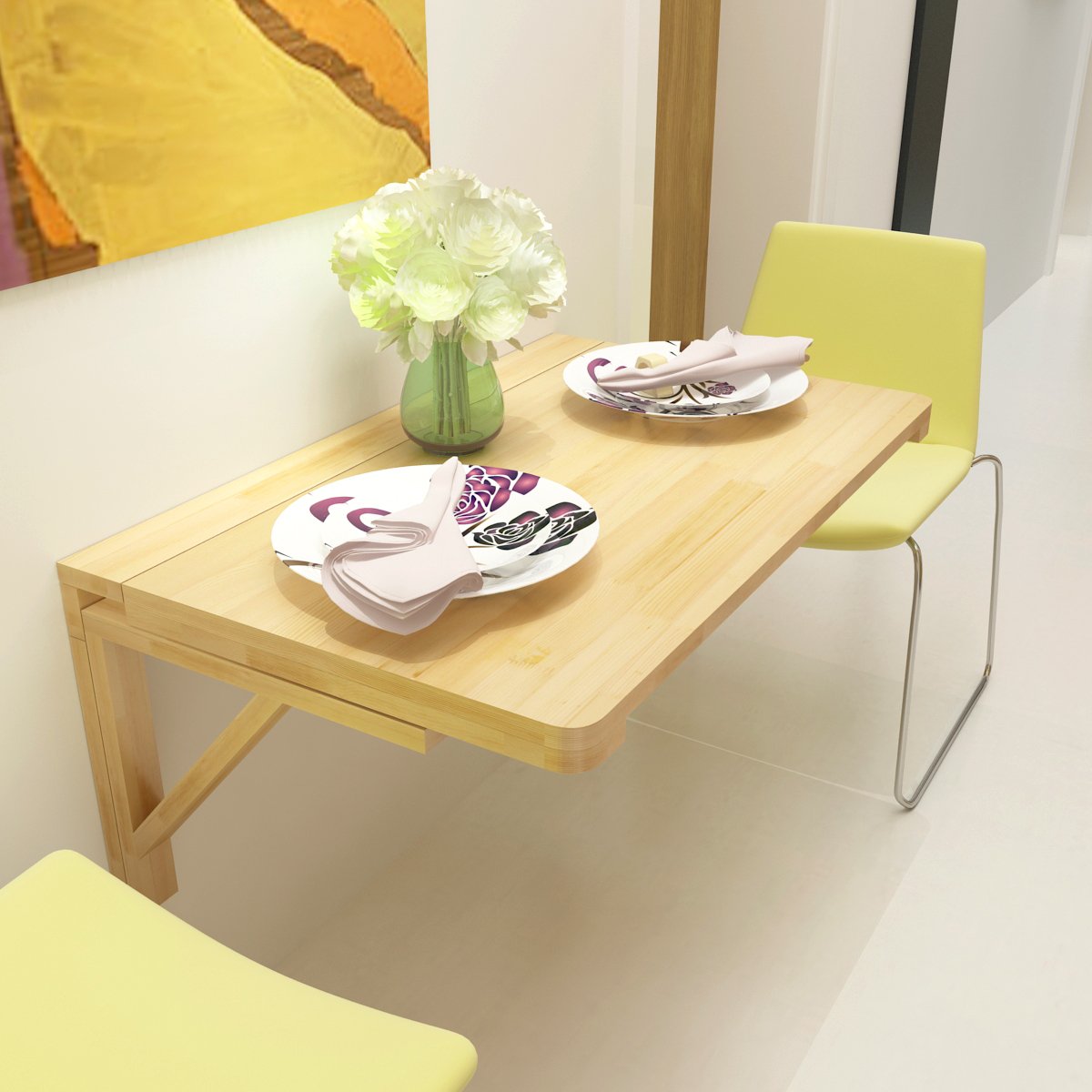
By design, the following types of supports are distinguished:
- fixed separately from the main part of the table - the legs here, when lifting the table top, abut against its middle part, where there are corresponding holes;
- fixed at the bottom of the base - such supports are first mounted on the wall, then - to the plane of the table;
- in the form of an acute triangle - it is attached under the table top, the details, when the base is raised, are taken to the side, supported along the entire length. This is the most robust design, but not compact due to its large supports;
- with bracket-legs - they are mounted to the wall and tabletop, rise simultaneously with the main part, are fixed, and when it is required to fold the hanging product, the table is lifted up or pulled by the lever.
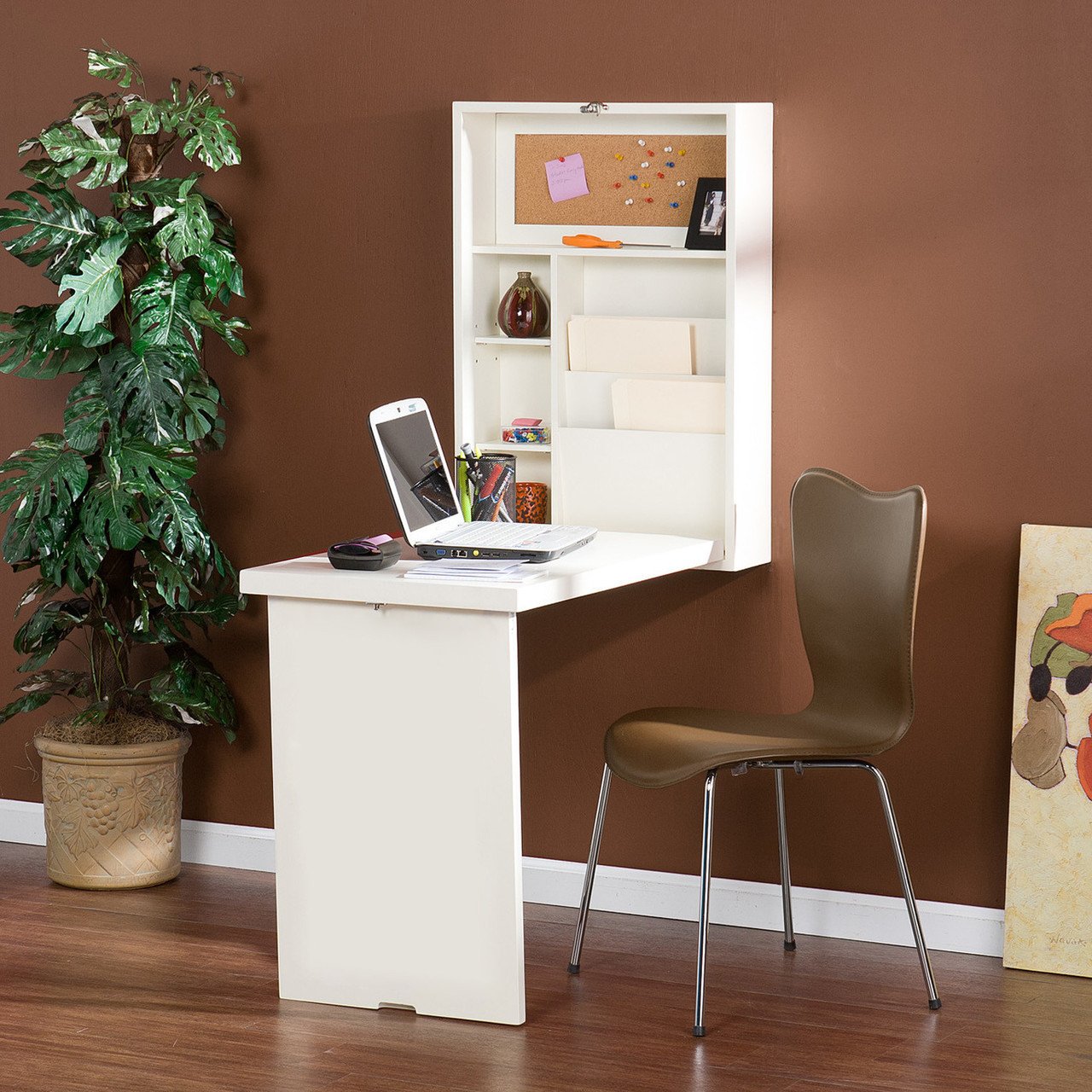
Fastening mechanisms are folding or lifting. Installation is carried out on anchor dowels, piano or door hinges, brackets. The latter provide maximum stability, are sliding, folding.
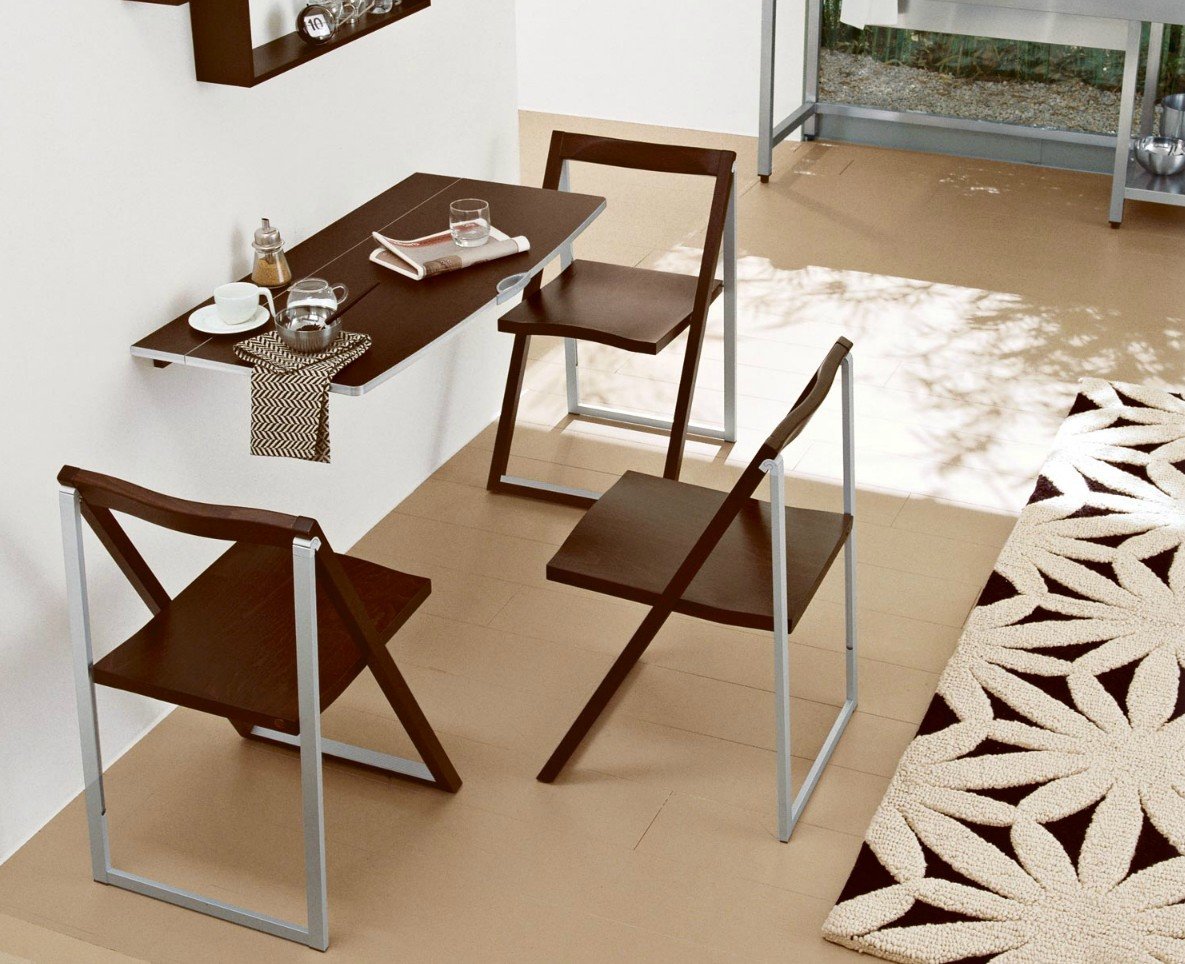
Transformable tables are distinguished by the type of elements fixing the mechanism:
- tsarovyh - a standard version with a frame, to which a tabletop and a sliding mechanism are mounted;
- zargovy - do not have a massive base, the sliding mechanism is fixed directly to the table, which can move apart synchronously or asynchronously.
Standard table parts - base strip, brackets of various configurations, console, door hinges, roller guides, anchor bolts, clamps, decorative elements. The base bar is used to fasten the table surface, it is connected with hinges to other parts, bolts are fixed to the wall. The console often becomes another shelf. Locks keep the structure folded, hinges and handles make unfolding easier.
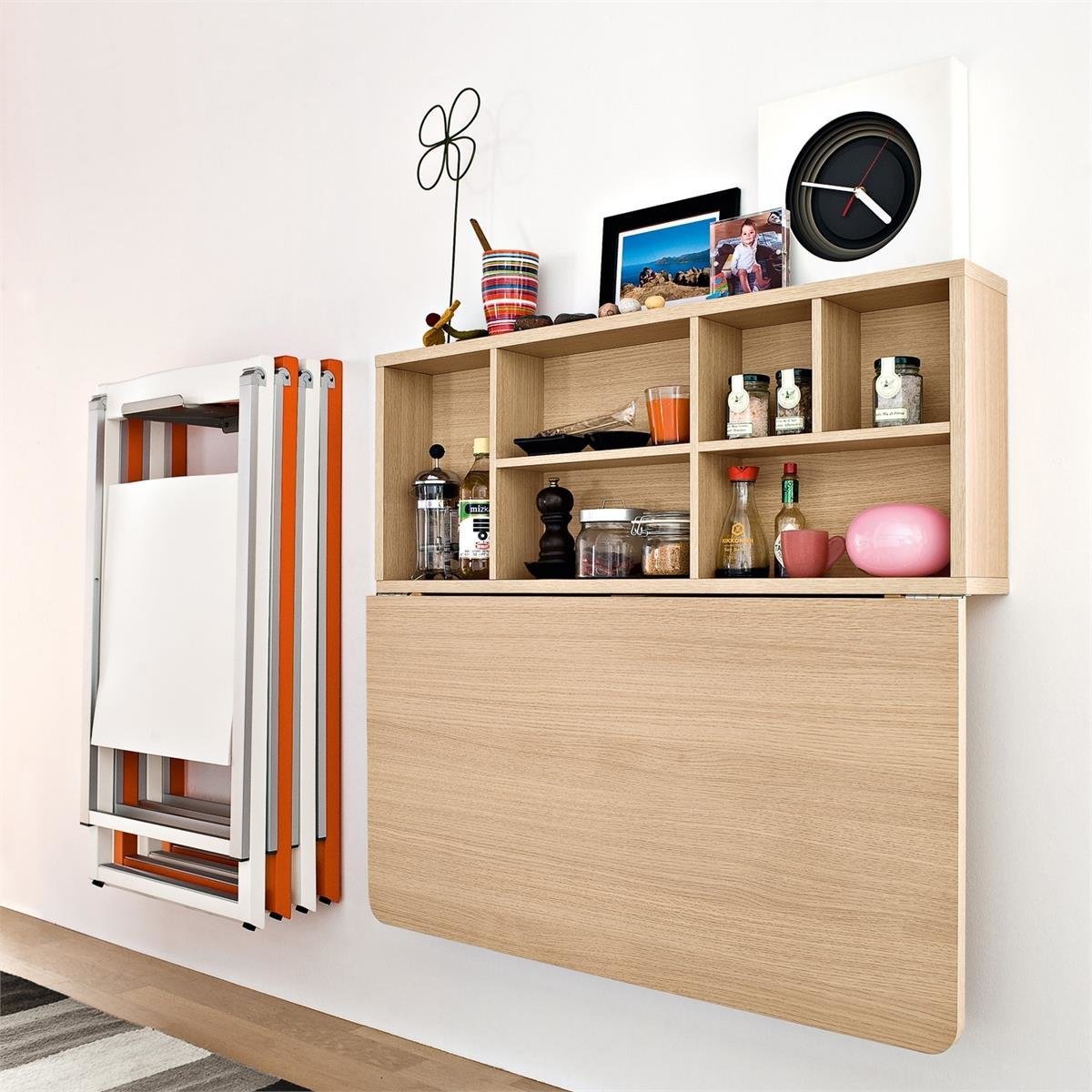
How to make a do-it-yourself folding table with wall mounting
The question of how to make a folding table for the kitchen, hall, dining room, nursery, hallway, any other room with your own hands is easy to solve. First, they acquire the necessary materials, tools, make a drawing, select fasteners, then assemble the structure, mount it to the wall. With the right approach, the whole process of making a table will take no more than three hours.
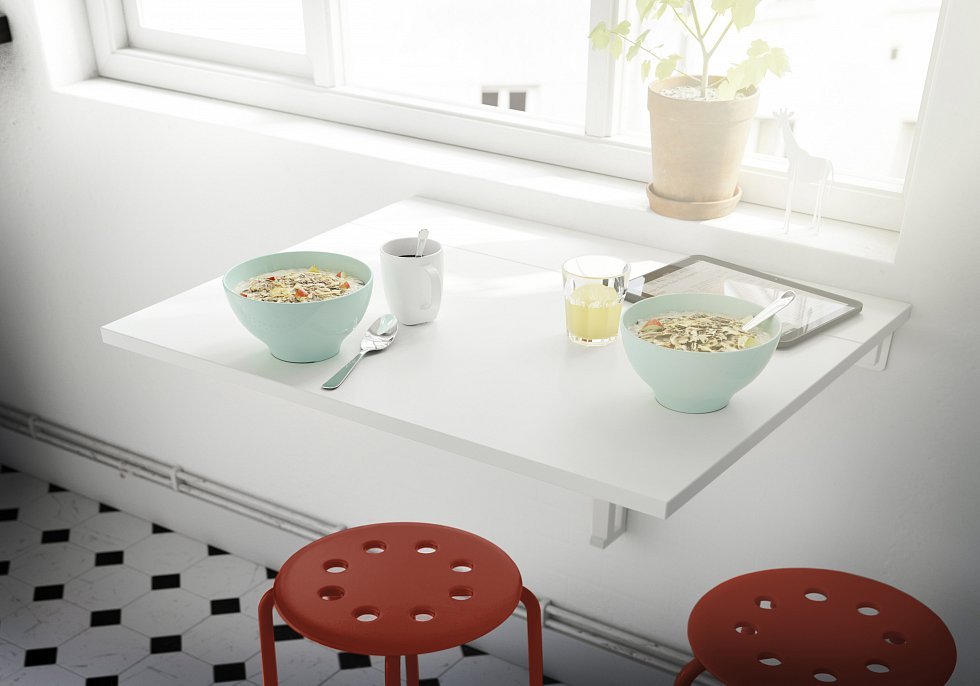
Required tools and materials
Of the materials, MDF is most often used, chipboard is budgetary, easy-to-process materials. It is easy to make a table of any shape from them. Less commonly used natural wood (birch, oak, linden, aspen, hornbeam, larch) - it is more expensive, but durable, looks beautiful in any interior, creates a feeling of comfort. Even less often, impact-resistant glass is used - it is cold to the touch, but does not weigh down the interior. Plastic structures with metal legs do not differ in durability, but they can be easily assembled and cleaned of dirt.
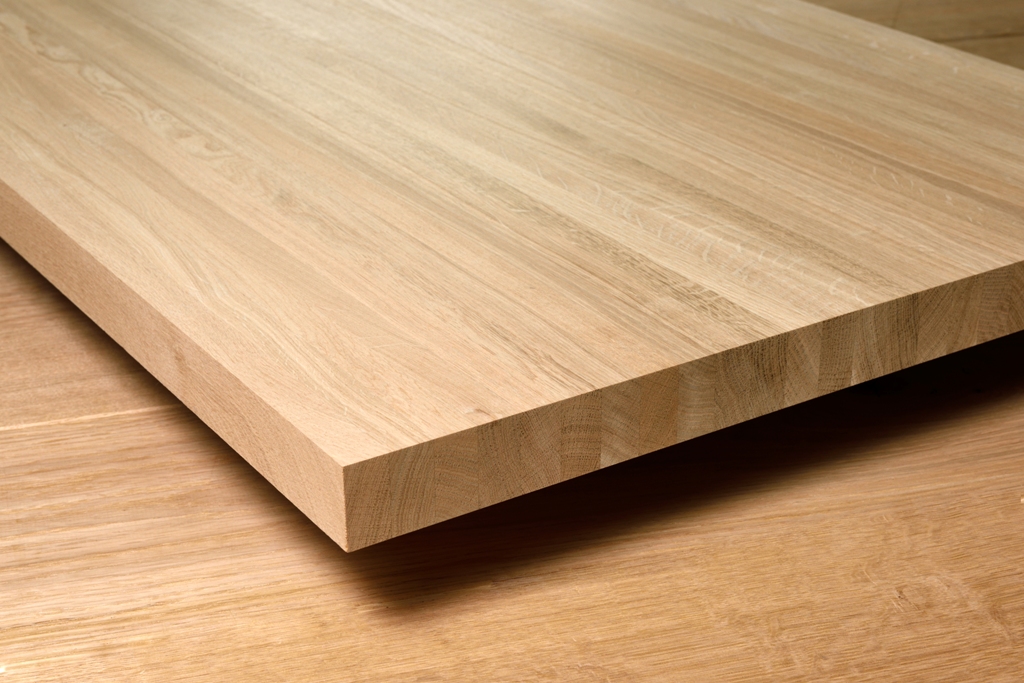
To work with wood, chipboard, MDF, you will need the following tools:
- puncher;
- drill;
- building level;
- hammer;
- keys;
- crosshead screwdriver;
- square;
- ruler;
- pencil.
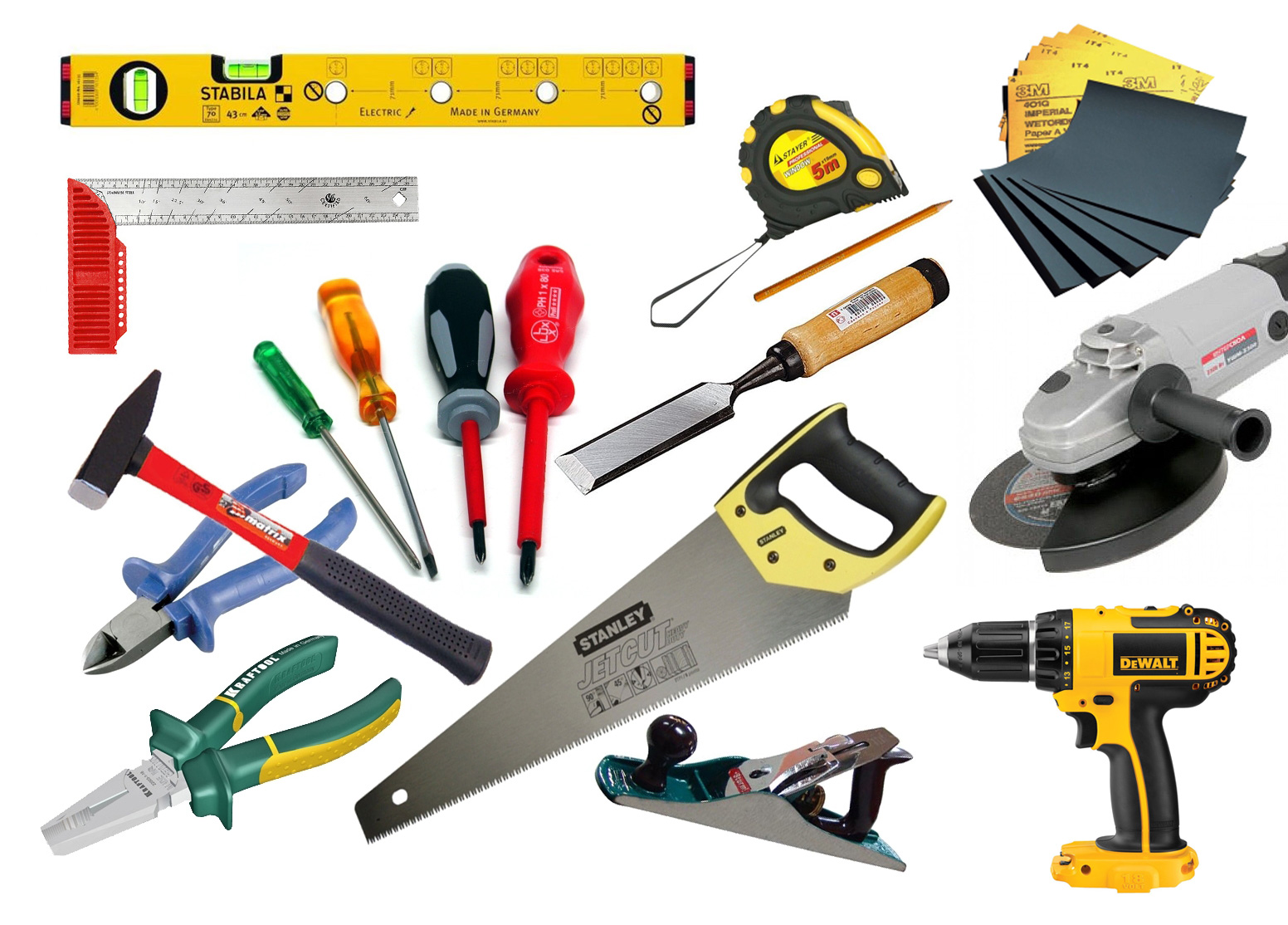
Additionally, they purchase mounting anchors, door hinges of a suitable size. If you plan to decorate the product, buy varnish or paint, brushes, paint containers, self-adhesive films or natural veneer.
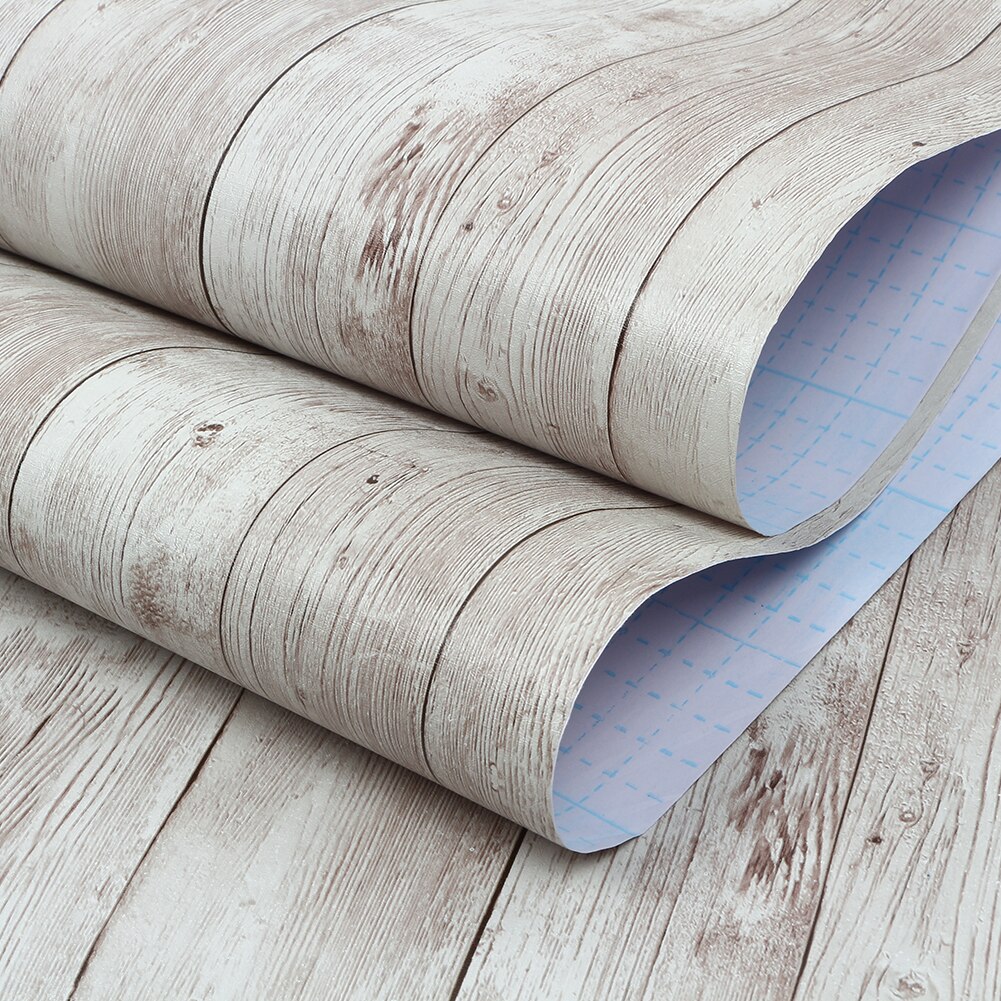
Drawings of the table-transformer
In the drawing of a folding convertible table, the tabletop itself, a bar fixed to the wall, an emphasis and an emphasis shoulder, hinged joints, a limiter are depicted. A similar design can easily fit on the balcony, in the bedroom, kitchen, nursery, cramped studio apartment. It is important to correctly calculate, mark out the material available to cut, select the appropriate fasteners.
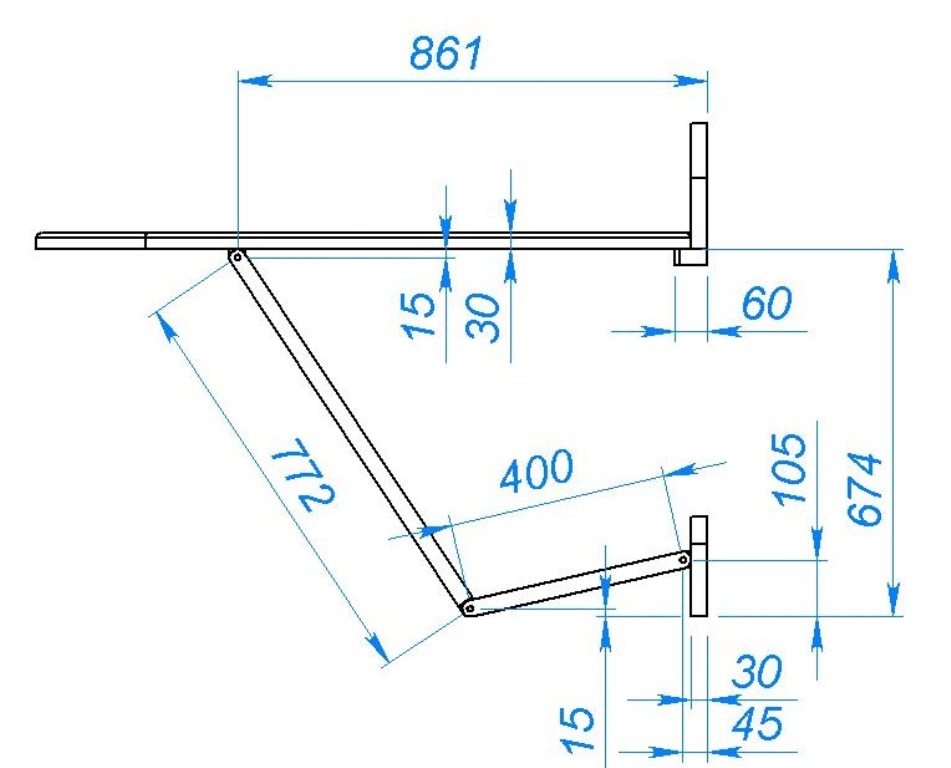
Tabletop and support fabrication
When making a wall dining or work table, the sequence of actions is approximately as follows:
- The installation site is chosen, taking into account that the mounting surface is made strong, withstanding the weight of the tabletop and accompanying elements. When unfolding the structure, other objects in this room should not interfere with the process;
- In a bar prepared to create a frame, holes are drilled, observing a distance of 20-25 cm;
- The bar is applied to the wall, mark the place of the first hole at the desired level;
- The hole is drilled - its diameter is 7-9 mm, the depth is 9-13 mm. more anchor length;
- The beam is attached to the anchor so that it moves freely;
- Next, the bar is exposed horizontally, marked out, all other holes are drilled in the wall;
- After installing the expansion anchors, tighten them tightly - the frame base is ready;
- Using door hinges, the legs are fixed along the edges of the table plane - they are mounted so that when folded they do not interfere with the tight fit of the table to the wall surface;
- The hinges are attached to the tabletop, and it itself is mounted with self-tapping screws to the frame beam fixed to the wall;
- The tabletop is installed in the working (horizontal) position, the thrust legs are placed against the wall, the location of the locking bars is noted. The latter are firmly fixed on the wall surface with anchors;
- To test the structure, you need to raise and lower the tabletop several times - movement should not be difficult. If there are legs, they must be placed on the floor.
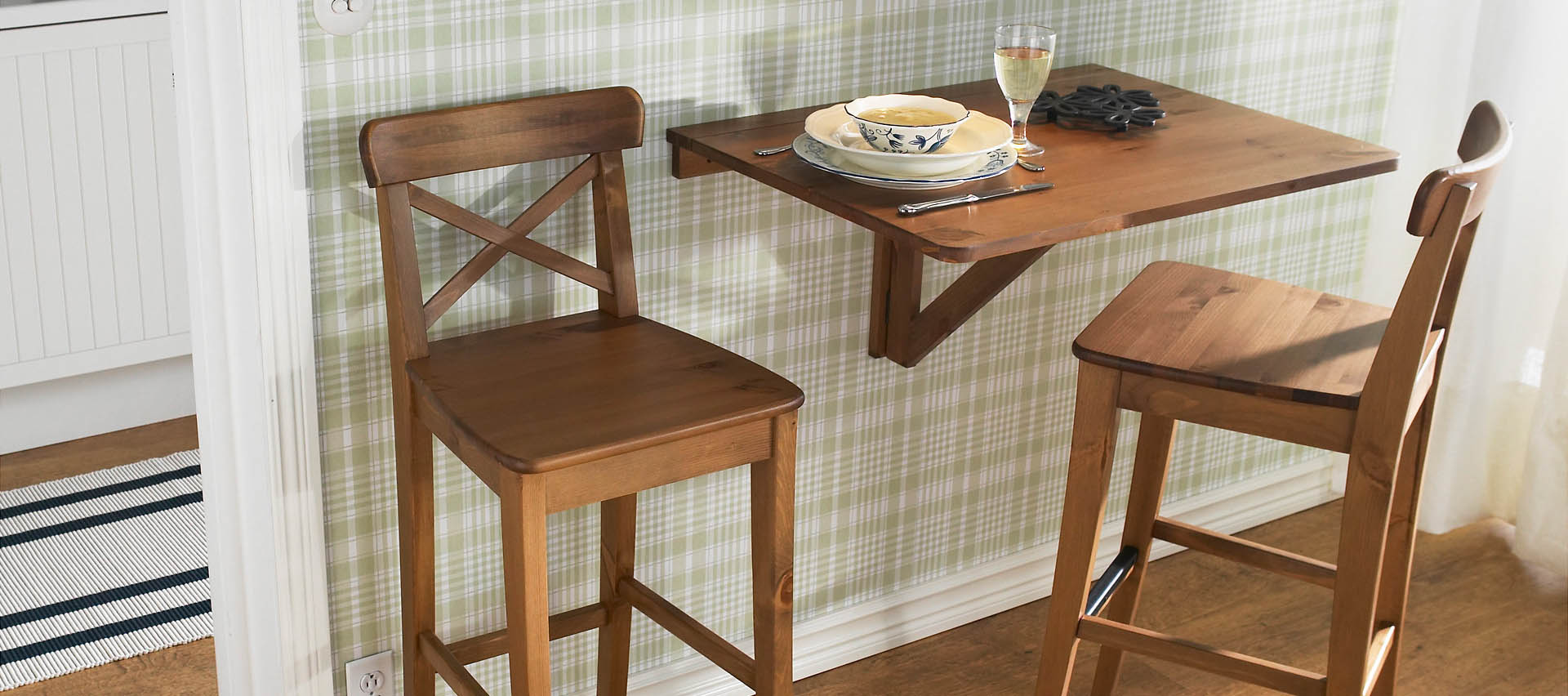
How to fix the table yourself
The easiest way to secure the finished table is using hinges and one support. The marking is done without fail - if the surface does not come out strictly horizontal, it will not be possible to place any objects on it, they will fall. Usually, the table itself is first assembled, after which they mount it to the plank on the wall as a whole.
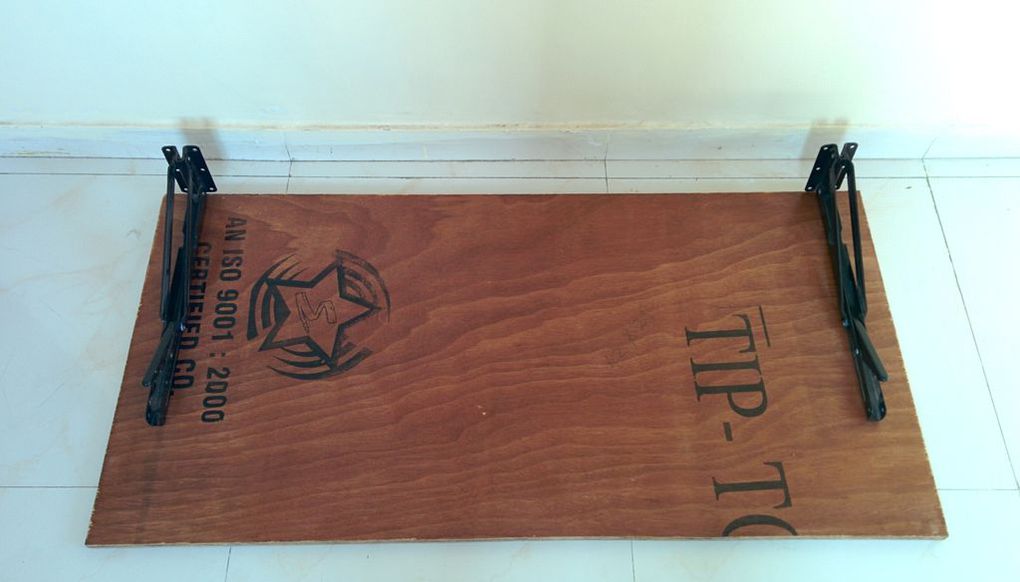
In hinged structures, stationary fastening options or bolts, corners, hinges are used. The latter are usually used for folding surfaces. It is permissible to use backlashes and closers in the table configuration. Installation of large, heavy products is best done together. A well-fixed table does not interfere with movement in the kitchen, saves space, and increases the functionality of the kitchen set.

You can make and attach a table to the wall with your own hands, if you have suitable fasteners and tools.It is important to choose the right item for the kitchen set, make sure that the product does not interfere with movement around the room. Drawings are developed independently or found on the Internet, on sites dedicated to the manufacture of furniture.

Video: do-it-yourself folding table in the kitchen
